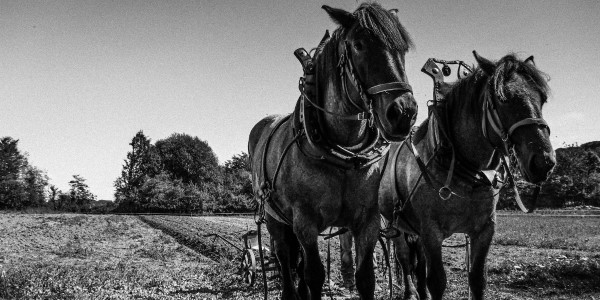As autumn approaches, we’re reminded of the historical significance of horses in agriculture during the fall harvest season. For centuries, horses shaped the harvest season by facilitating planting, tending, and reaping of crops. This essay delves into the historical importance of horses during the fall harvest and highlights their enduring role in modern agriculture. Also, if you are looking for a horse property for sale in Colorado, contact Colorado Horse Property today and speak with one of our horse-person realtors.
Horses Shaped the Harvest Season
In the past, the fall harvest was a time of great importance for agrarian societies. It marked the culmination of months of labor, careful cultivation, and anticipation. Horses were at the center of this agricultural endeavor, serving a multitude of critical roles. Farmers used horses to break and prepare the soil, pulling plows and tilling equipment to create the ideal planting environment. The reliable strength and speed of horses enabled the efficient sowing of seeds and planting of crops. From cultivating rows to pulling harrows, horses assisted in keeping the fields clear of weeds and properly aerated. Horses were invaluable during the harvest, whether for pulling grain binders to cut crops or for hauling loads of harvested produce. Horses also served as the primary mode of transportation to bring the harvested crops to storage or market.
While technology has revolutionized agriculture, horses have not been entirely replaced by tractors and machinery. In many regions worldwide, modern farmers continue to recognize the value of horses during the fall harvest season. Their role has evolved, but their significance remains. In small-scale or family farming, farmers still employ horses for various tasks, especially where the use of large machinery is not practical. The resurgence of interest in sustainable and organic farming has led to a reevaluation of traditional farming methods. Horses are great because of their minimal impact on the environment. Some agricultural operations require the precision and agility that horses can provide, such as vineyards and orchards. Horses also play a role in modern agriculture through equestrian tourism, providing riding experiences on farms or vineyards during the harvest season.



